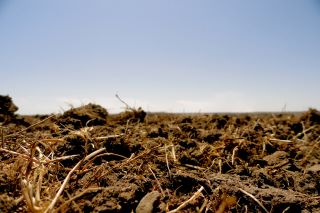Pre-Seed Weed Control
Apr 18, 2022

PRE-SEED WEED CONTROL
Updated by Taralea Simpson P.Ag, Sales Agronomist
Pre-seed weed control is a valuable tool to use in an overall weed control strategy for your crop rotation. Early crop removal has been documented as a crucial step in maximizing crop yield due to reduced weed density and competition. Glyphosate is a commonly used active ingredient for pre-seed weed control, however with increasing amounts of glyphosate resistant weeds emerging we should be actively utilizing multiple modes of action in combating weed problems. This strategy allows targeting of weeds with two or more effective modes of action at once, which helps to reduce selection pressure for resistant weeds and manages herbicide resistance on the farm.
Pre-seed application is one of the easiest times to include a tank-mix into your herbicide program. Adding to glyphosate not only expands the weed spectrum you control but can also extend time of weed control with the addition of the new tank mix options available. This will allow fields to stay clean longer and help maximize yield.
Below you will find new additions added to the previous list of excellent options for tank mixing with glyphosate in a pre-seed program.
Please give your local Shur-Gro Agronomist a call for further clarification.
- Wheat, barley, and oats – Intruvix, Korrex II, Paradigm PRE, Heat LQ, Blackhawk, Conquer II, Express SG, First Pass/Priority, Thunderhawk
- Spring Wheat (not durum) – Inferno Duo, Focus, Smoulder, Voraxor
- Canola – Certitude, Prospect, Conquer II, Command Charge, Pardner
- Soybeans and Field Peas – Heat LQ and Heat Complete, Valtera and Fierce, Authority and Authority Supreme, Focus, Voraxor
- Dicamba tolerant soybeans – Xtendimax, Engenia, FeXapan
- Field Corn – Heat LQ and Heat Complete, Conquer II, Valtera and Fierce, Focus, Voraxor, Zidua SC
- Sunflowers – Authority, Focus, Express SG or Zidua SC
- Flax - Authority